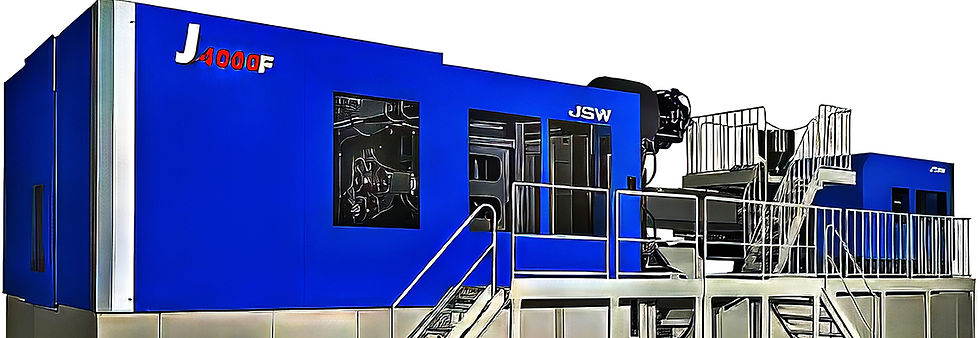FerrumFortis
LKAB Names Johan Menckel New CEO To Lead Green Transformation & Rare Earth Ambitions
Tuesday, July 15, 2025
Protectionist Pressures Plunge Promising Producers into Peril
In a move rattling trade corridors, the United States has levied a towering 50% tariff on select Brazilian exports. This sudden sanction, framed by Washington as a safeguard for domestic industries, has sparked consternation among Brazilian exporters and policymakers alike. Analysts caution the cost hike may distort market dynamics, undermine decades of trade integration and ultimately raise prices for American consumers too. For Brazil, the tariff threatens its hard-won status as a reliable supplier in key global value chains, forcing urgent recalibration of commercial strategies.
Steel Sector Sorely Stricken by Steep Surcharges & Supply Shocks
Brazil’s venerable steel industry stands at the epicentre of this tariff tempest. Renowned for cost-effective, quality flat products and semi-finished goods, Brazilian steel has long supported US infrastructure, automotive and machinery sectors. With the new tariff, Brazilian producers face daunting price disadvantages, likely pushing American buyers to explore local mills or alternative foreign sources. “Margins are already thin,” remarks an industry insider, “and a 50% cost shock risks making many contracts commercially untenable.” While some American manufacturers may attempt domestic substitution, supply gaps loom large, especially for specialty grades historically sourced from Brazil.
Agrarian Agonies Amidst Ascendant Arbitrariness
Beyond metals, Brazil’s sprawling agrifood sector could suffer equally. Processed meat, orange juice, coffee and grain exports face price hikes that may erode competitiveness in US supermarket aisles. Analysts note American buyers may shift to closer trade partners, but warn Brazil’s scale and quality make swift substitution improbable. “These aren’t just numbers,” says a São Paulo-based economist, “they’re jobs, farm incomes and regional growth at stake.” Brazilian food firms, already navigating volatile global demand and logistics costs, now confront fresh hurdles threatening long-term contracts.
Substitution Struggles & Supply Shortfalls Spark Speculation
Despite political rhetoric, experts question whether US industries can seamlessly fill gaps left by pricier Brazilian imports. Certain steel grades, tropical fruits and processed foods remain scarce or seasonal in the domestic market. Replacing these swiftly requires scaling local production, retooling factories and securing alternate suppliers, moves that could take months or even years. Meanwhile, shortfalls may inflate costs along supply chains, potentially burdening American consumers with higher prices at car dealerships, grocery stores and construction sites.
Strategic Shifts & Southward Searches Salvage Sustainability
Faced with harsh headwinds, Brazilian exporters pivot toward diversification. Firms explore burgeoning Asian, Middle Eastern and African markets, adjust product portfolios to target less regulated segments and ramp up value-added goods. Larger steelmakers investigate downstream investments abroad to bypass tariffs, while agribusinesses partner with logistics players to cut shipping costs. Government agencies step in, offering credit lines and market intelligence to support exporters in recalibrating commercial tactics.
Diplomatic Dialogues & Deliberations Define Directions
Brazilian diplomats engage US trade officials in dialogue, advocating exemptions, temporary relief measures or quota systems to soften immediate shocks. Industry associations warn that blunt tariffs risk harming integrated North-South supply chains built over decades, contravening World Trade Organization principles. “Trade isn’t a zero-sum game,” argues an industry lobbyist, “protectionist walls hurt everyone — producers, buyers and consumers alike.” Observers await signs of détente, noting upcoming trade talks may chart a middle path balancing domestic interests and global competitiveness.
Resilient Resolve & Resourceful Reinvention Rekindle Relevance
Longer term, the tariff tremor may catalyze Brazilian industries to evolve beyond commodity exports. Sectors invest in digitalization, sustainable practices and higher-margin products like premium steels, processed foods and finished consumer goods. Policymakers frame this pivot as a chance to reduce over-reliance on the US market. Yet, for now, the shockwave reverberates most painfully across Brazil’s steel towns and agricultural heartlands, where livelihoods hinge on steady export demand.
Key Takeaways:
US imposes a 50% tariff, rattling Brazilian exports & risking costlier American goods
Brazilian steel & food industries brace for falling market share amidst rising prices
Experts warn American industries may struggle to replace critical Brazilian supplies swiftly
FerrumFortis
Brazilian Bargains Blighted by Blustering Barriers & Burdens
Tuesday, July 15, 2025
Synopsis: -
Brazilian exports face steep setbacks as the US slaps a hefty 50% tariff, sparking fears across Brazil’s steel & food industries. Experts argue these measures risk harming both nations’ supply chains & consumers while questioning America’s capacity to swiftly replace critical Brazilian goods.



















